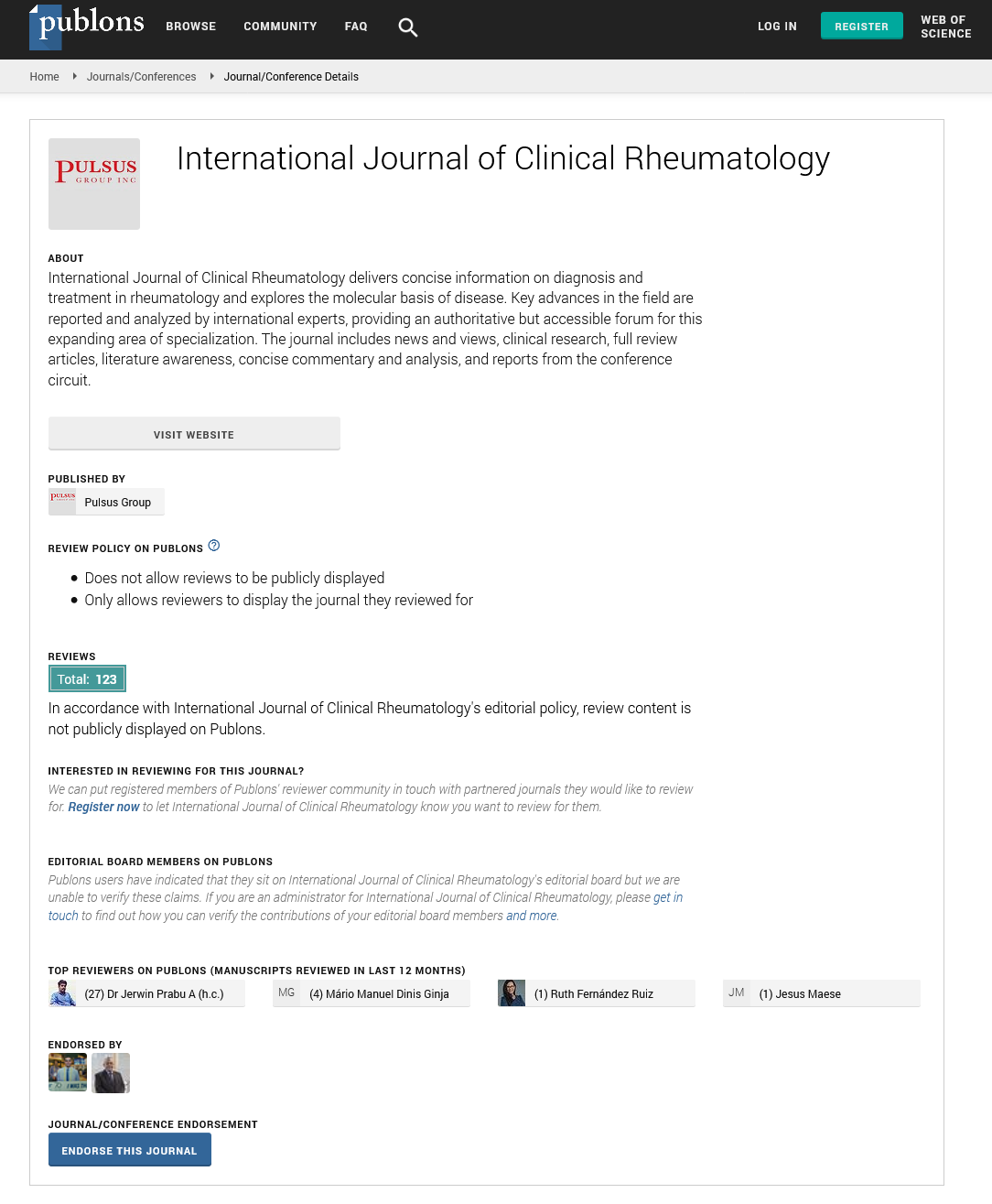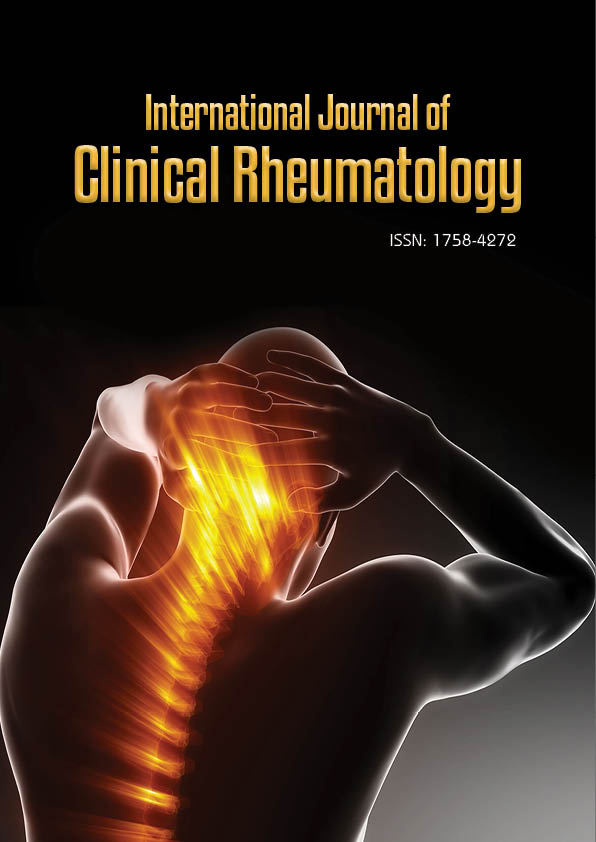Commentary - International Journal of Clinical Rheumatology (2022) Volume 17, Issue 5
Rheumatologists Overestimate Physical Disability of Rheumatoid Arthritis Patients, Study Finds
Ruth Fernandez-Ruiz*
NYU Langone Health, 301 East 17th Street, Suite 1410, New York, NY 10003
- *Corresponding Author:
- Ruth Fernandez-Ruiz
NYU Langone Health, 301 East 17th Street, Suite 1410, New York, NY 10003
E-mail: Ruth.FernandezRuiz@nyulangone.org
Abstract
Description
Rheumatologists substantially overestimate the physical disability of patients with rheumatoid arthritis – which may lead to inaccurate evaluations of the patient’s ability to work and need for lifestyle modifications, a new study found. Researchers at the University of South Florida College of Medicine and James A. Haley Veterans’ Hospital found a clear physicianpatient difference in assessment of the patients’ functional disability. The rheumatologists consistently rated their rheumatoid arthritis patients’ degree of difficulty in performing activities of daily living, such as walking, dressing and eating, higher than the patients themselves. This was particularly true for patients in advanced stages of the disease [1].
The very physicians deemed to be experts in rheumatoid arthritis failed to make the grade when it came to determining their patients’ functional status.
“This discrepancy is important to correct because patients can rely on these assessments for their livelihood or other necessities to perform activities of daily living [2].”
Rheumatologists are frequently asked to complete functional disability reports by employers, disability attorneys, insurance companies and government agencies weighing a person’s eligibility for disability payments, employment, or assistive devices such as wheelchairs, walkers, braces and splints [3].
Using the Stanford Health Assessment Questionnaire-Disability Index (HAQ-DI), rheumatologists evaluated 223 patients during their regularly scheduled visits to the USF Rheumatology Clinics and James A. Haley Veterans’ Hospital. The effectiveness of the HAQ-DI, based on patient self-reporting of their disability status, has been validated in clinical studies. The questionnaire covers eight activities of daily living: dressing, arising, eating, hygiene, walking, reach, grip and outside activity.
Both physician and patient completed the HAQ-DI independently immediately following the visit and their respective scores were not shared.
The rheumatologists overestimated the degree of functional disability in 154, or 69 %, of the 223 the patients. However, they were significantly more accurate at determining the degree of physical limitations in patients with less severe disease [4].
The reasons for the overestimation are unclear, but may include empathy and suggest that even patients with advanced rheumatoid arthritis adapt their activities to the progression of the chronic disease. “We tend to associate visible joint deformities with incapacitated function, but patients may actually be more capable than we think.”
Rheumatologists typically determine functional disability based on the patient’s examination and medical history, but these impressions during routine care are inadequate. The study points to the need for a formal, standardized evaluation, such as the HAQ-DI. It needs to be reimbursable and include input from physical and occupational therapists who could add valuable insight to the process of evaluating disability [5].
Rheumatoid arthritis affects about 2.1 million Americans, or 1 % of the population. Over the last decade new drugs have revolutionized the treatment of this debilitating inflammatory disease, but nearly all patients with rheumatoid arthritis eventually develop some degree of work or daily lifestyle disability, often severe.
Acknowledgement
None
Conflict of Interest
There is no Conflict of Interest.
References
- Hashkes PJ, Wright BM, Lauer MS et al. Mortality outcomes in pediatric rheumatology in the US. Arthritis Rheum. 62, 599-608 (2010).
- Kozu KT, Casella CB, Strabelli CA et al. Mental Health Impact in Latin American Pediatric Rheumatologists During the COVID-19 Pandemic. J Clin Rheumatol. 28, e506-e510 (2022).
- Tavangar-Rad F, Ziaee V, Moradinejad MH et al. Morbidity and mortality in Iranian children with juvenile systemic lupus erythematosus. Iran J Pediatr. 24, 365 (2014).
- Pincus T, Callahan LF, Sale WG et al. Severe functional declines, work disability, and increased mortality in seventy‐five rheumatoid arthritis patients studied over nine years. Arthritis Rheum. 27, 864-872 (1984).
- Tucker LB, Menon S, Schaller JG et al. Adult-and childhood-onset systemic lupus erythematosus: a comparison of onset, clinical features, serology, and outcome. Rheumatol. 34, 866-872 (1995).
Indexed at, Google Scholar, Crossref
Indexed at, Google Scholar, Crossref
Indexed at, Google Scholar, Crossref


